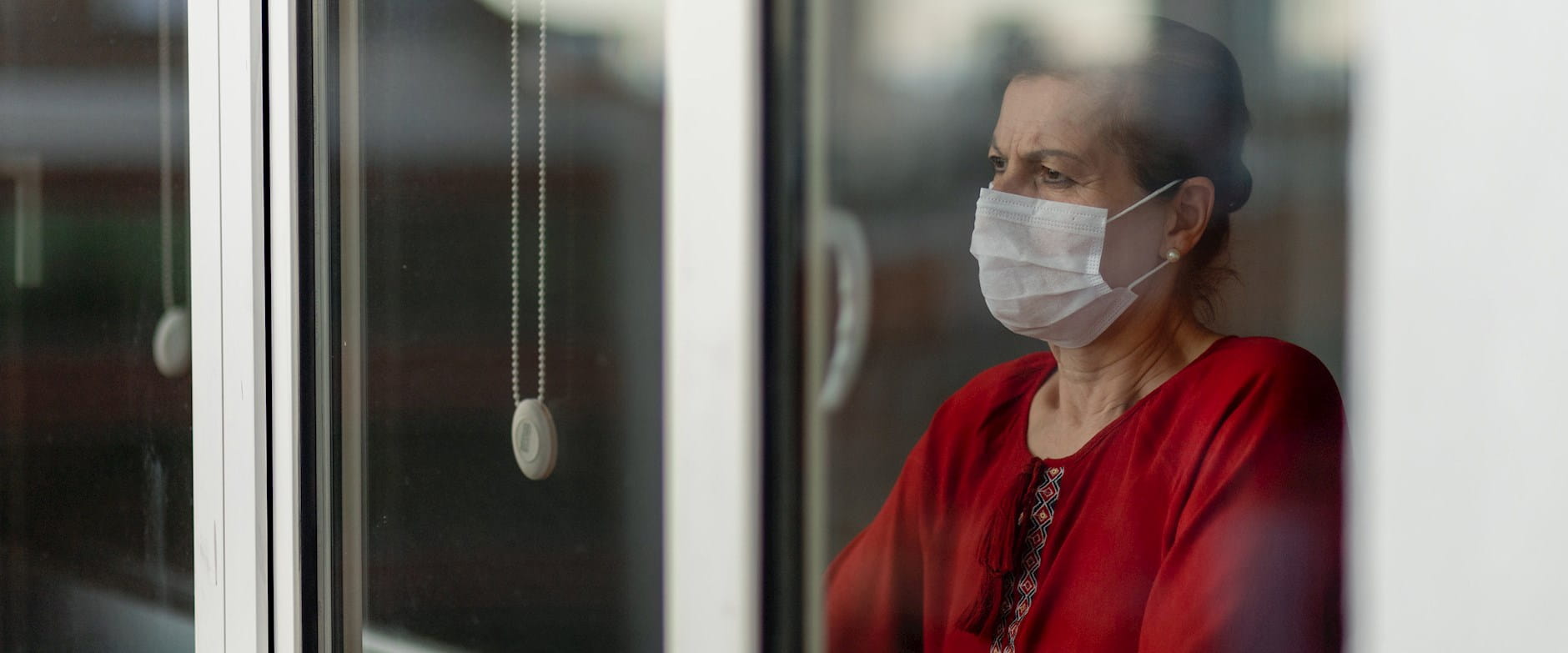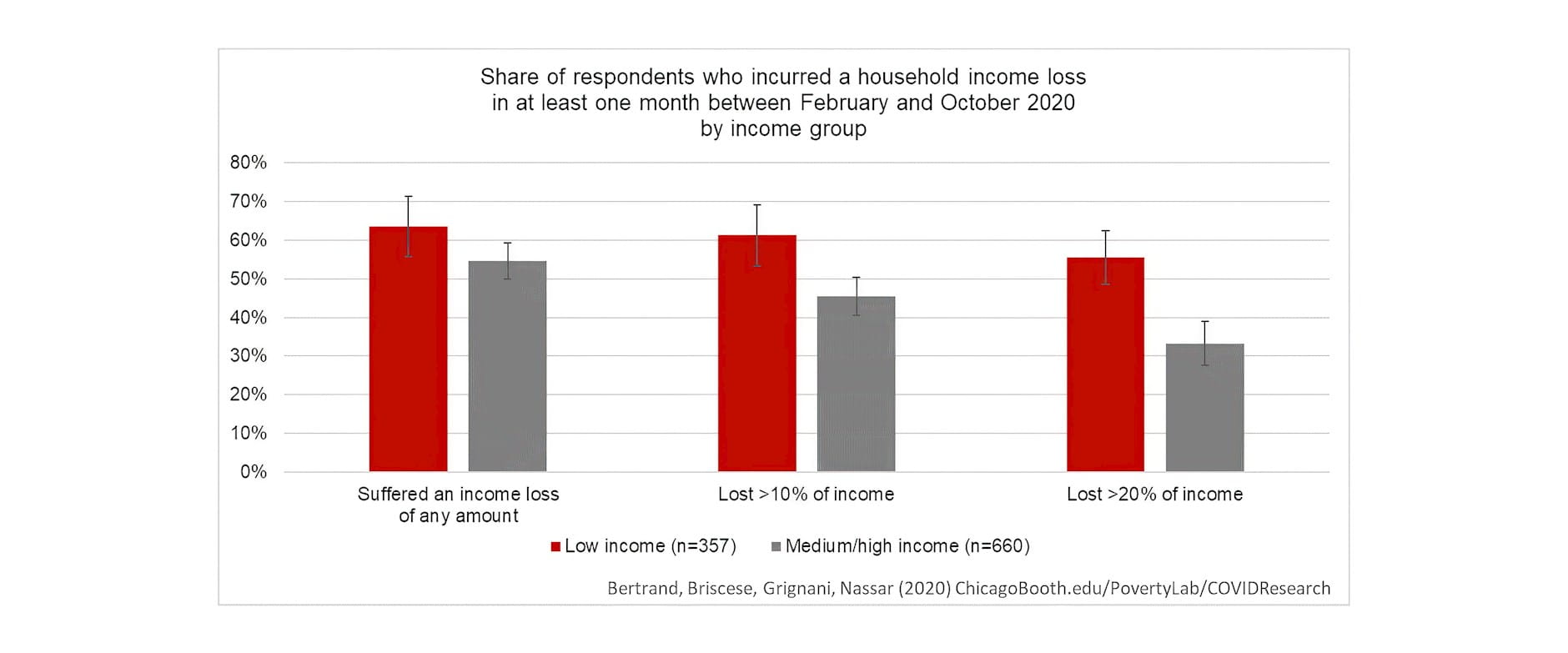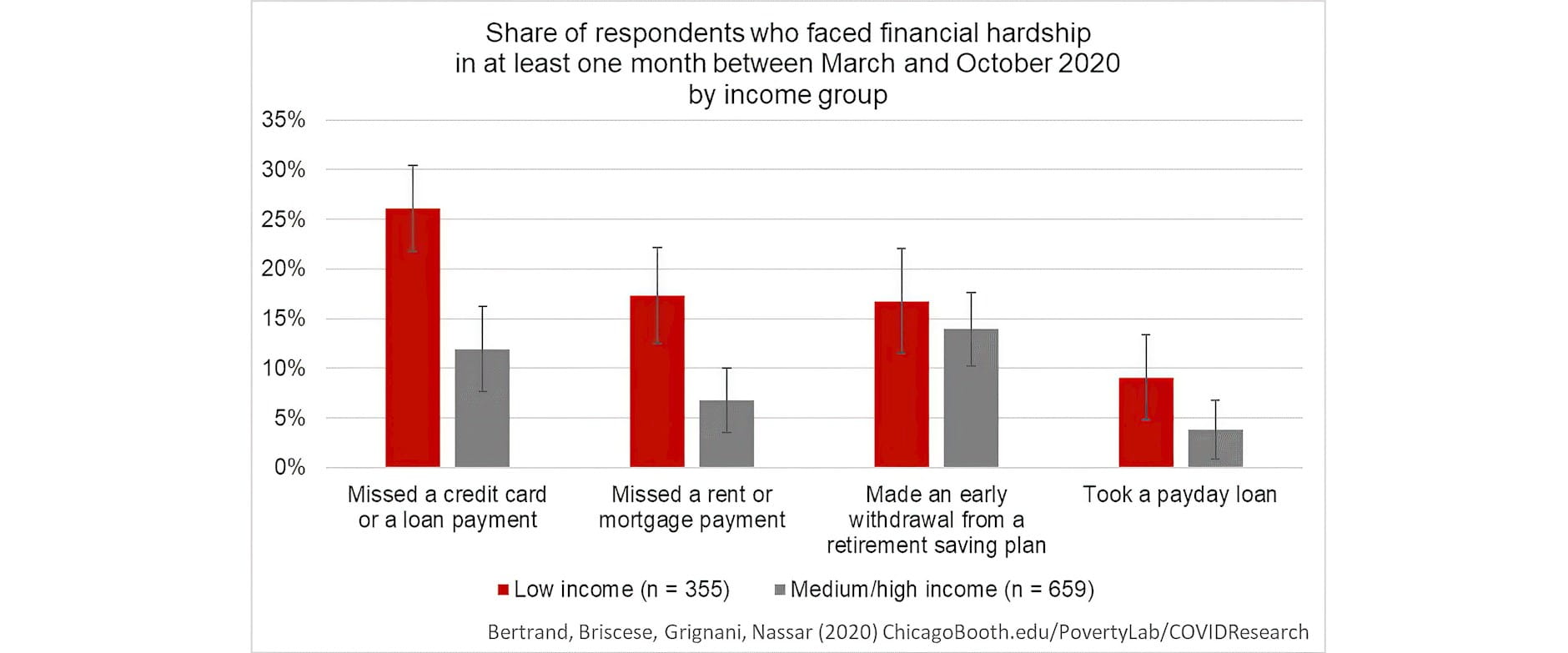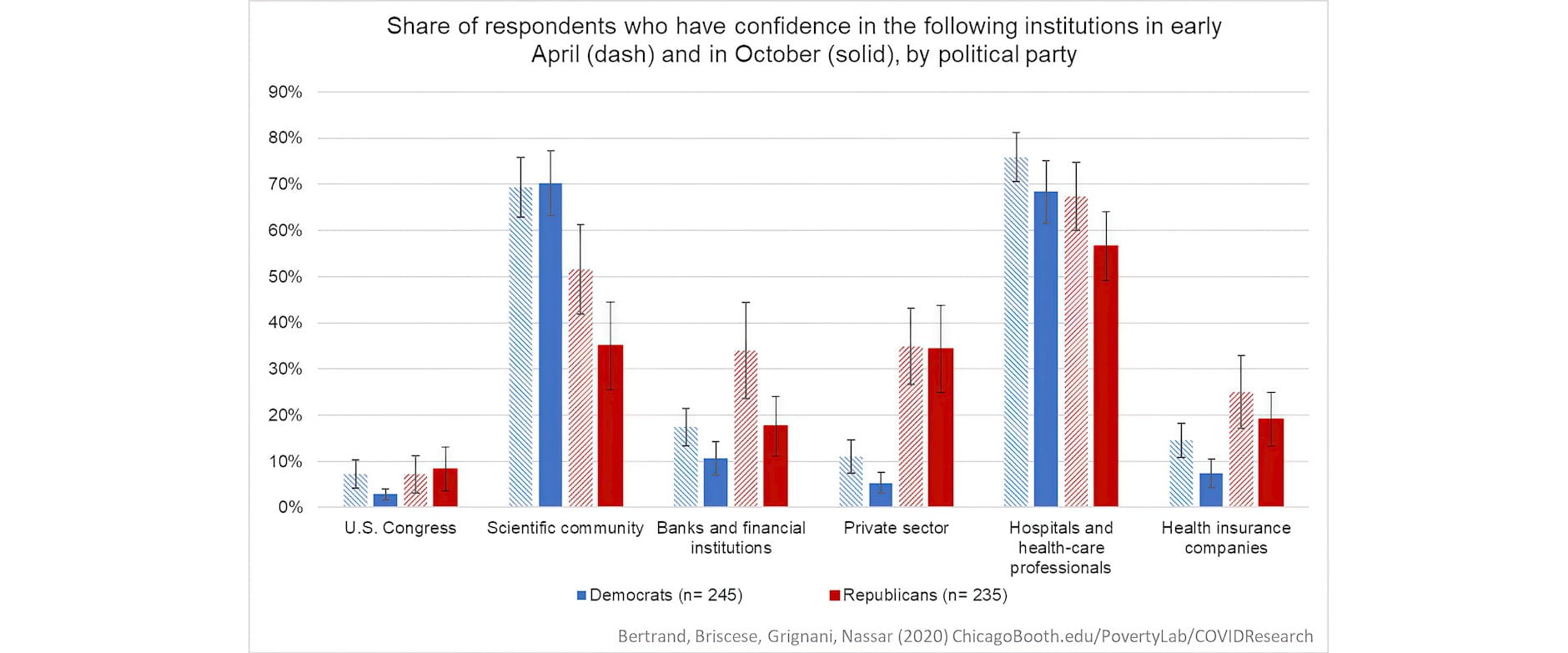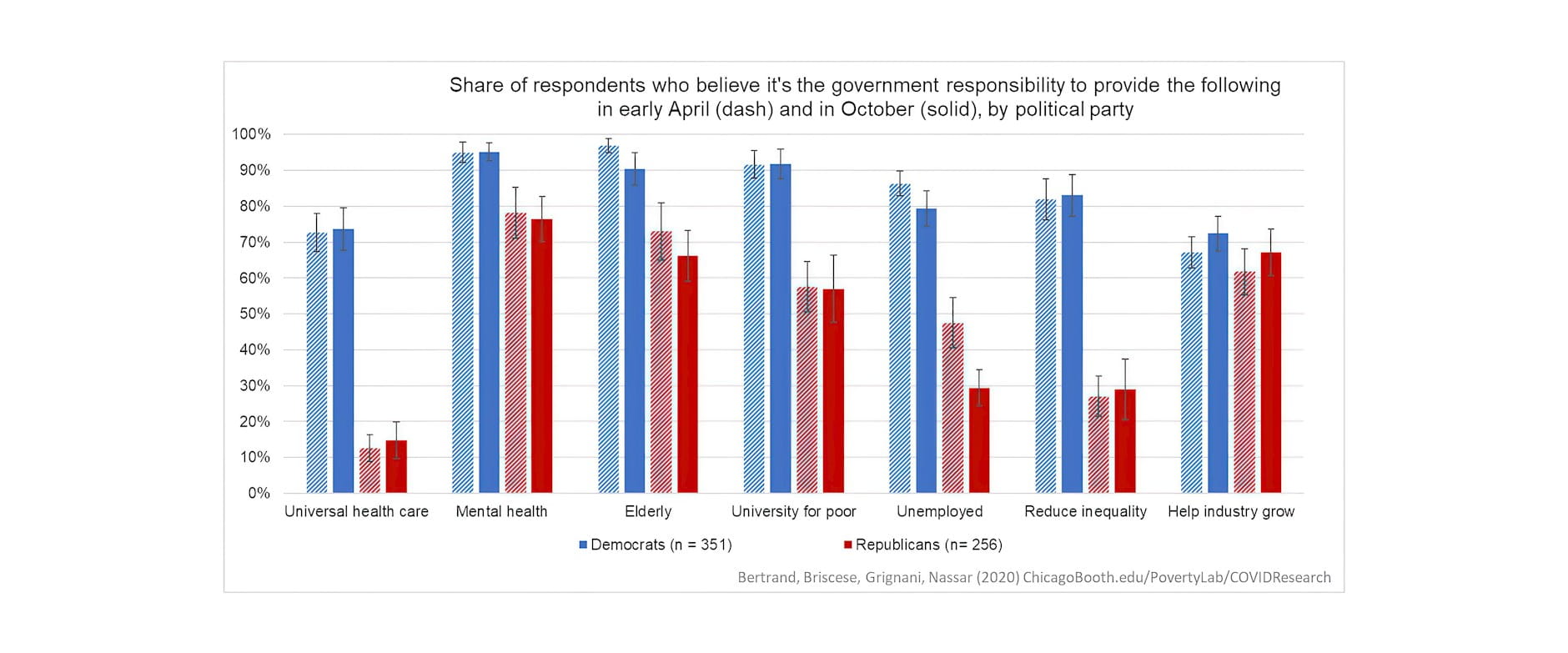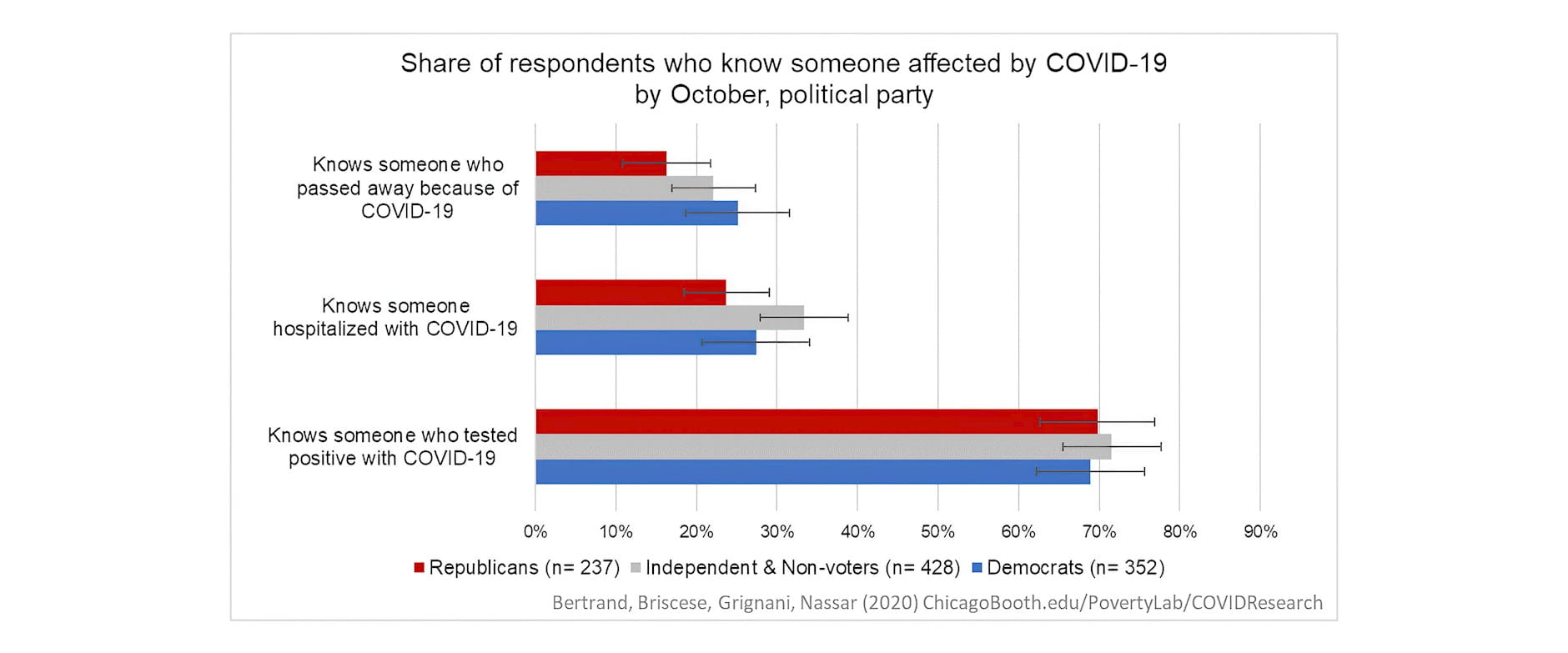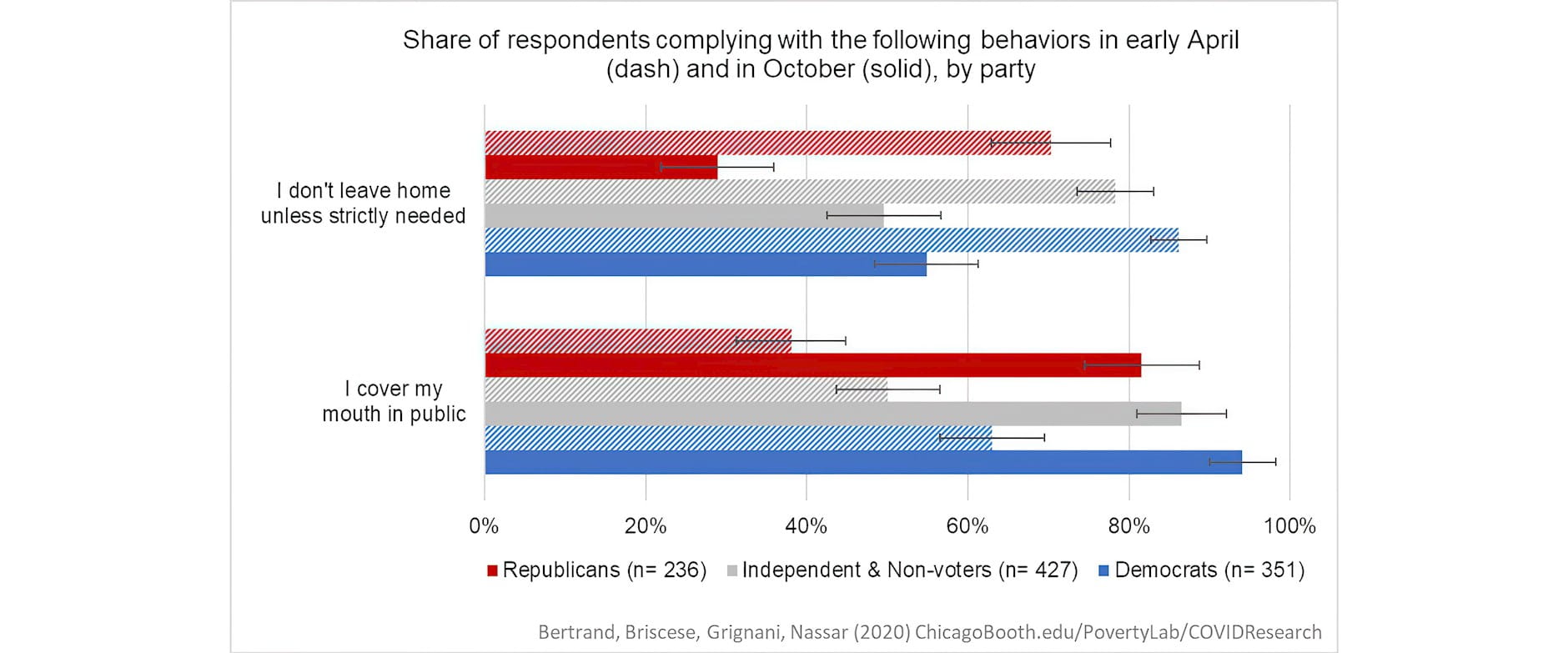Related: See data from past waves of the U.S. household survey
The COVID-19 pandemic triggered one of the largest public health and economic crises the U.S. has witnessed in modern history. A team of researchers at the Poverty Lab and the Rustandy Center for Social Sector Innovation at the University of Chicago in partnership with NORC at the University of Chicago, an independent and non-partisan research institution, has implemented a seven-wave longitudinal survey between April and October 2020. The survey was administered to a representative sample of about 1,000 Americans drawn from NORC's probability-based AmeriSpeak Panel to learn how the crisis has affected their economic situation, their views about institutions and policies, and their behaviors related to the pandemic. The findings emerging from this study highlight how the COVID-19 pandemic has exacerbated existing income, gender, and race inequalities, and affected Americans’ trust in institutions, further increasing political divisions.
Read the full report (pdf)
We highlight key findings from the report below.
Sixty percent of Americans earning below $30,000 annually pre-COVID lost income. Low-income households also lost a higher fraction of their income and were less likely to recover income, compared with higher income households.
Note: The chart shows the share of respondents who incurred an income loss at the household level in at least one month between March and October 2020. The shocks are calculated with respect to the self-reported income in February. Household income is adjusted by household size.
Americans are experiencing financial hardship due to the crisis. Among low-income households, 17 percent have missed a rent or mortgage payment and over a quarter have missed a credit card or a loan payment since the start of the pandemic. Across income groups, about 15 percent of the families in our sample have withdrawn from their retirement savings, potentially undermining their future financial stability. A smaller but significant portion of families have taken payday loans (about 9 percent and 4 percent, respectively), short-term unsecured cash advances often characterized by high interest rates.
Note: The chart shows the share of respondents who faced any of these financial hardships at the household level in at least one month between March and October 2020.
Democrats and Republicans report different levels of trust across institutions, although they both report extremely low levels of confidence, less than 10 percent, in the U.S. Congress. Americans' trust in institutions has decreased throughout the pandemic, with Republicans experiencing the largest decrease in trust in people in the scientific community and banks and financial institutions, while Democrats reported their largest drops in trust for the U.S. Congress, the private sector, and health insurance companies.
Note: The chart shows the share of respondents who have a “great deal” or “complete” confidence in the institutions. Bars with stripe pattern refer to responses obtained in the first wave of the survey (in the first week of April), while solid bars show the responses from the seventh wave of the survey (third week of October). For easier reading, we omitted responses from Independents in the chart.
Since April, fewer individuals believe that it is the government’s responsibility to support the unemployed, with Republicans reporting the largest drop.
Note: The chart shows the share of respondents who agree or strongly agree with the fact that it is the responsibility of the government to provide for the series of policy interventions. Bars with stripe pattern refer to responses obtained in the first wave of the survey (in the first week of April), while solid bars show the responses from the seventh wave of the survey (third week of October). For easier reference, we omitted responses from Independents in the chart.
Americans have been exposed to COVID-19 in similar ways, regardless of their income, state, or political party. By October, about 70 percent of Americans report knowing someone who has tested positive and about 1 in 5 Americans knew someone who passed away due to coronavirus.
Note: The chart shows the share of respondents, according to their political affiliation, who know someone who tested positive with COVID-19, someone hospitalized with COVID-19, and someone who passed away because of the virus between February and October.
Over 85 percent of Americans reported wearing a mask covering in public in October, with Republicans increasing their likelihood from 35 percent in April to over 80 percent in October.
Note: The chart shows the share of respondents who report complying with two preventive measures - not leaving their homes unless strictly needed, and covering their mouths while in public, in early April (dash bars) and October (solid bars). We separate respondents according to their party affiliation.
Check back to Rustandy's Coronavirus Social Impact Research page for the latest results. Read the press announcement.
Authors
Marianne Bertrand, Chris P. Dialynas Distinguished Service Professor of Economics, University of Chicago Booth School of Business, and Faculty Director, Chicago Booth's Rustandy Center for Social Sector Innovation and UChicago’s Poverty Lab; Guglielmo Briscese, Postdoctoral Fellow, Poverty Lab; Maddalena Grignani, Research Professional, Rustandy Center; and Salma Nassar, Director of Research Initiatives, Rustandy Center





